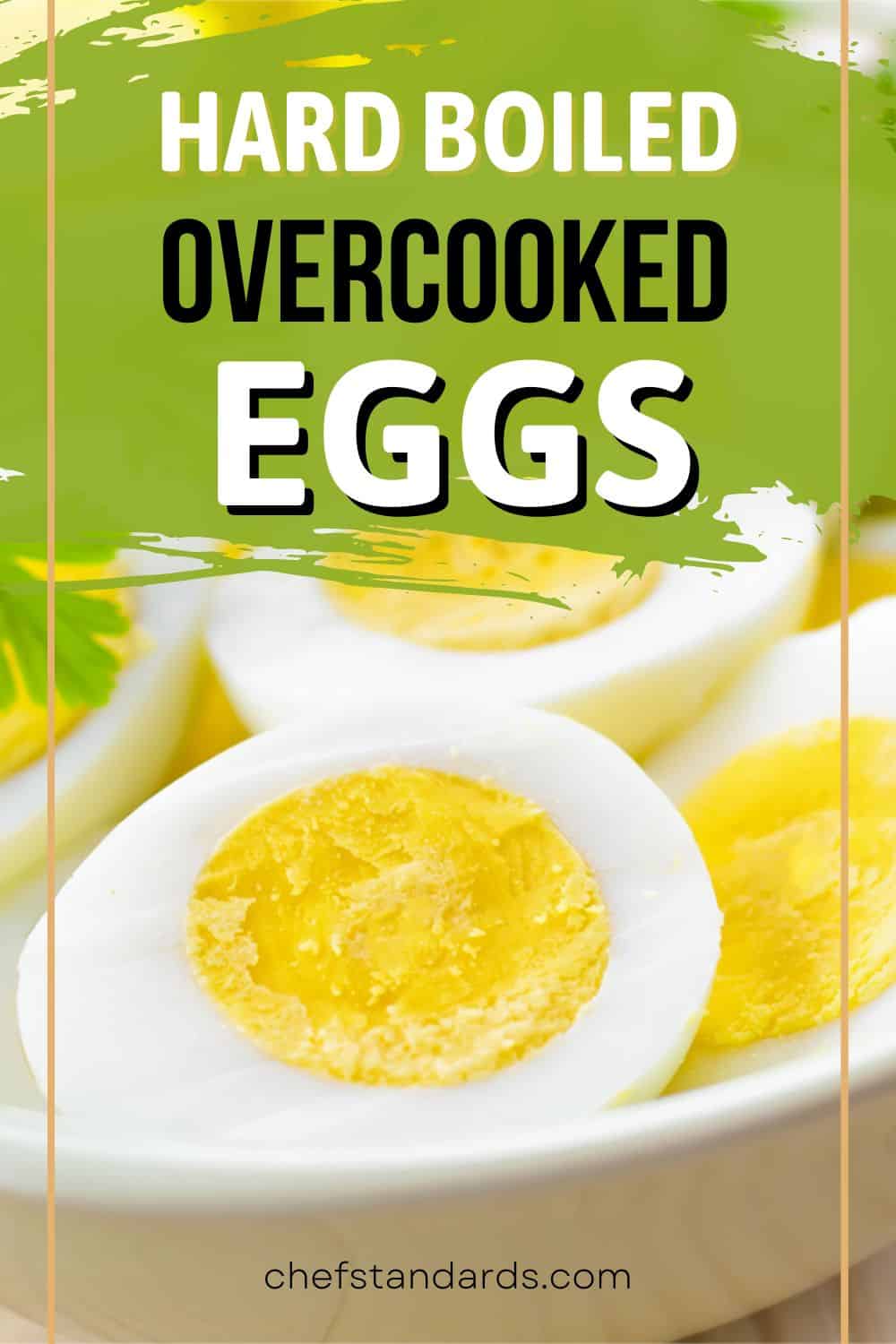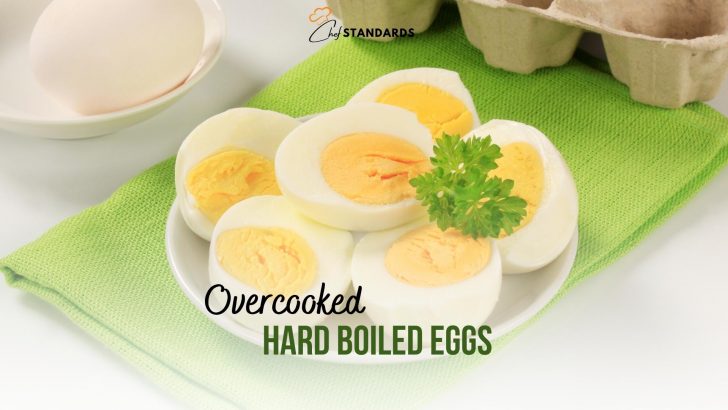Eggs are among the most popular foods on the planet. They are also one of the most consumed foods and there are plenty of reasons for that. Perhaps the most important one is that eggs can be incorporated in so many types of dishes.
Also, it is really easy to prepare eggs and eat them on their own. And not to forget, eggs are very healthy since they have a high nutritional value. But, how exactly can you prepare your eggs?
One of the most popular ways to prepare eggs and eat them on their own, besides making scrambled or fried eggs, is to boil them. There are two types of boiled eggs: hard-boiled eggs and soft-boiled eggs.
Well, there are also reboiled eggs but that’s a story for another day. In today’s article, I am going to talk about hard-boiled eggs.
I am going to say a few more words about overcooking those boiled eggs, i.e. what happens when you overcook the eggs, is it safe to consume overcooked hard boiled eggs, how can you use them properly, and a few other important things related to this interesting topic.
So, stay tuned to find out all the answers about overcooked hard boiled eggs.
What Happens If You Make Overcooked Hard Boiled Eggs?
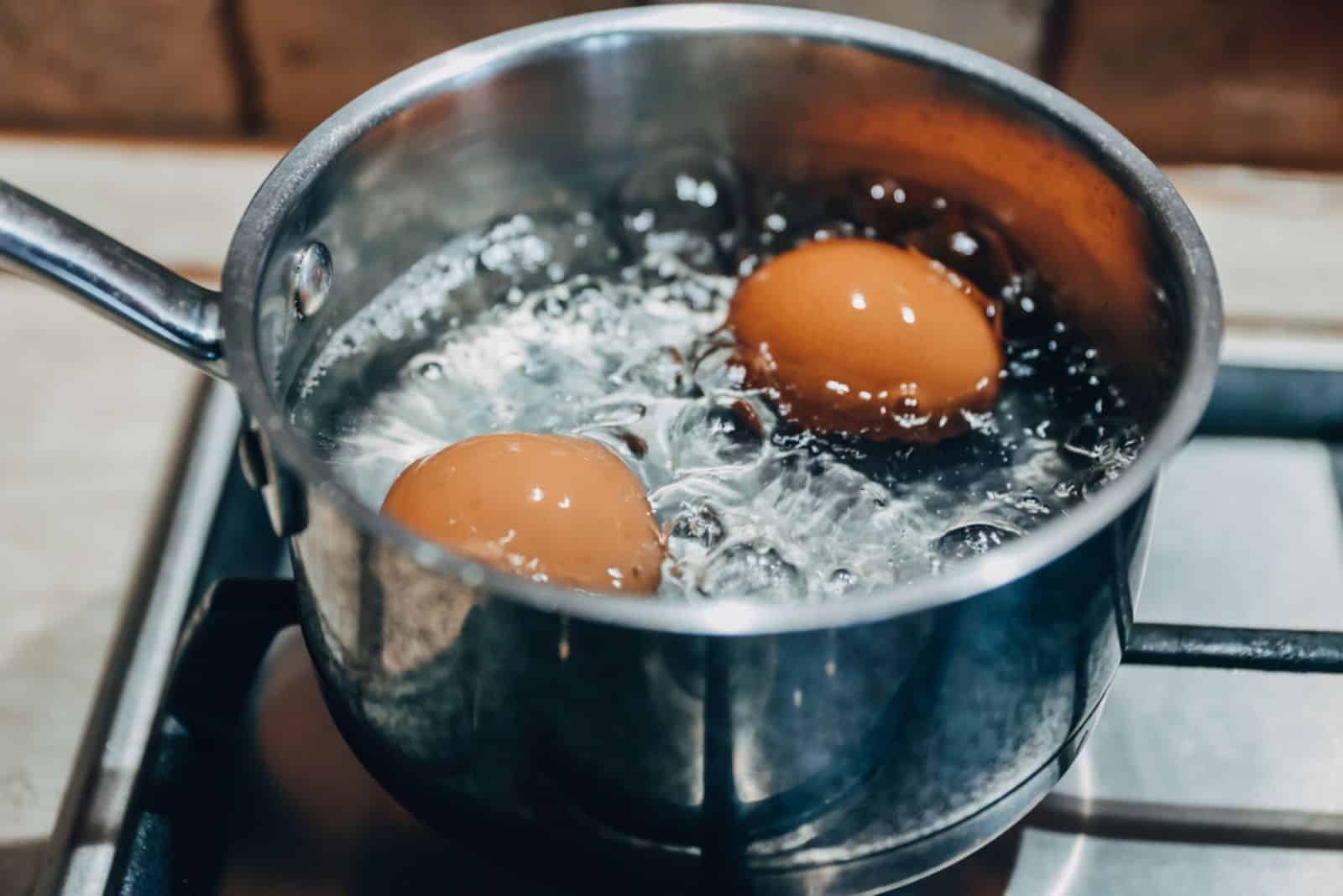
There are several major things that can happen when you make overcooked hard boiled eggs. But the most important one is definitely the formation of a green layer outside of the yolk, i.e. on the surface of the egg yolk.
When you cut the egg in half, you will see that green layer in the form of a ring. That is why most chefs and home cooks call this phenomenon the green ring. That same green ring is always a sign that you have exceeded the cooking time of your egg, i.e. that you have overcooked your egg.
Besides the greenish color of the egg yolk’s surface, a firmer and rubbery texture is also a sign of an overcooked hard boiled egg. The main reason for this is the formation of protein links on the surface of the egg yolk. The longer the egg is boiled, the more links will be created.
And the last thing that changes when you overcook hard boiled eggs is the egg’s smell.
An overcooked hard boiled egg will have a slightly unpleasant smell. But why do hard boiled eggs smell when overcooked? The answer lies in the so-called hydrogen sulfide that is created in the chemical reaction when a hard boiled egg is overcooked.
More about hydrogen sulfide and other chemical stuff related to it below.
What Causes The Green Ring Around Hard Boiled Eggs?
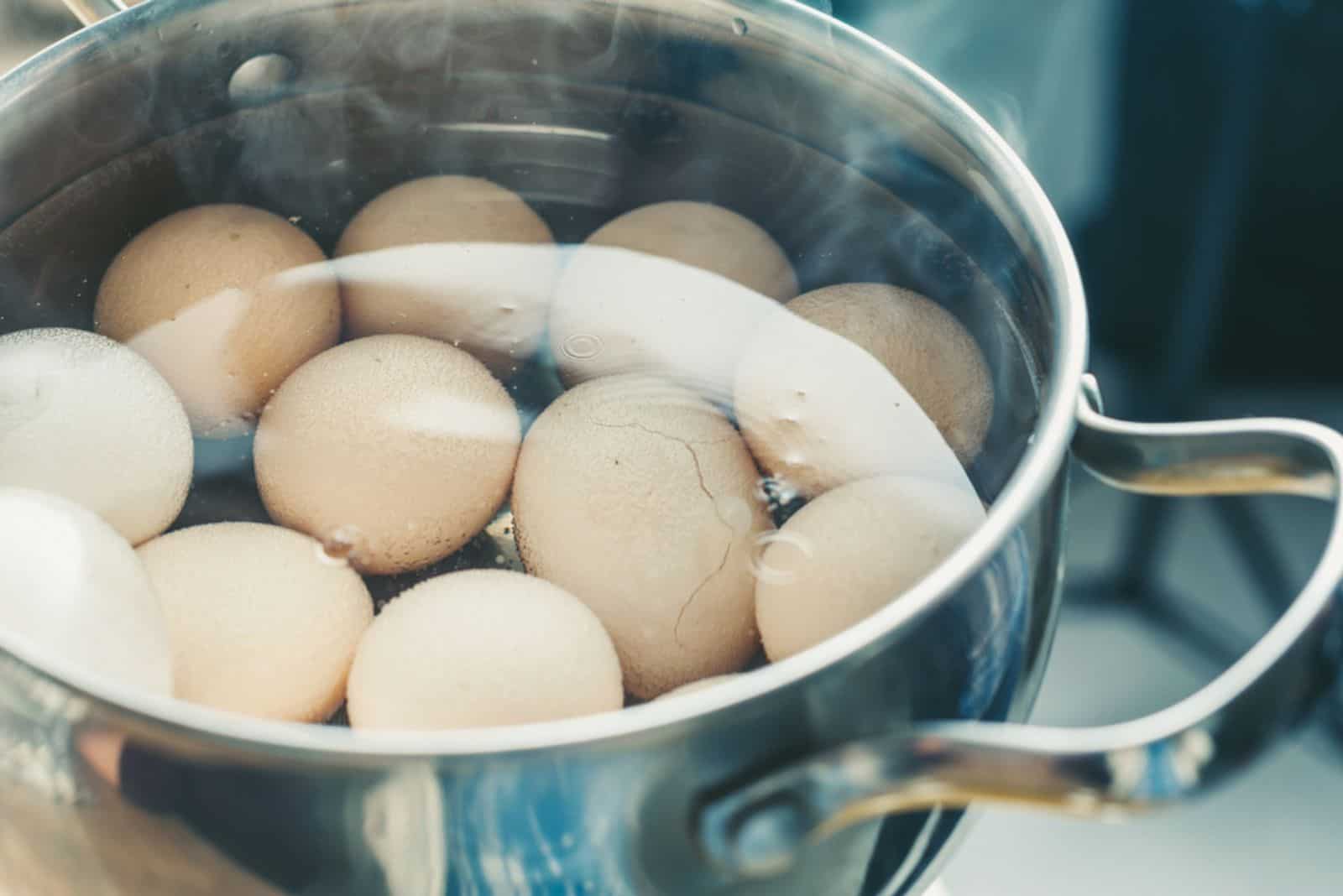
The main reason for the discoloration of the yellow yolk of the egg is iron sulfide or ferrous sulfide. But how is it formed in the egg? Well, when the egg is exposed to high temperatures in the cooking process for a longer time, some molecular changes start to take place in the egg itself.
Instead of the formation of bonds between hydrogen sulfide and iron compounds between the egg yolk and the egg white at normal temperatures, at high temperatures, iron sulfide appears.
In the beginning, it is the gas that can be harmful to human health, but just a small amount of that gas creates a layer with green color on the surface of the egg yolk.
For that reason, overcooked eggs are not harmful to human health.
That small amount of hydrogen sulfide that creates iron sulfide together with iron compounds can not cause food poisoning or do any damage to your health, especially if you eat a moderate amount of it.
The interesting thing is that, when you tend to make scrambled eggs and you scramble them using a cast iron pan, you will also notice a discoloration of the pan because of the chemical reaction between cast iron and hydrogen sulfide.
Hydrogen sulfide is responsible for that specific odor of overcooked hard boiled eggs as well.
Will Overcooked Hard Boiled Eggs Hurt You?
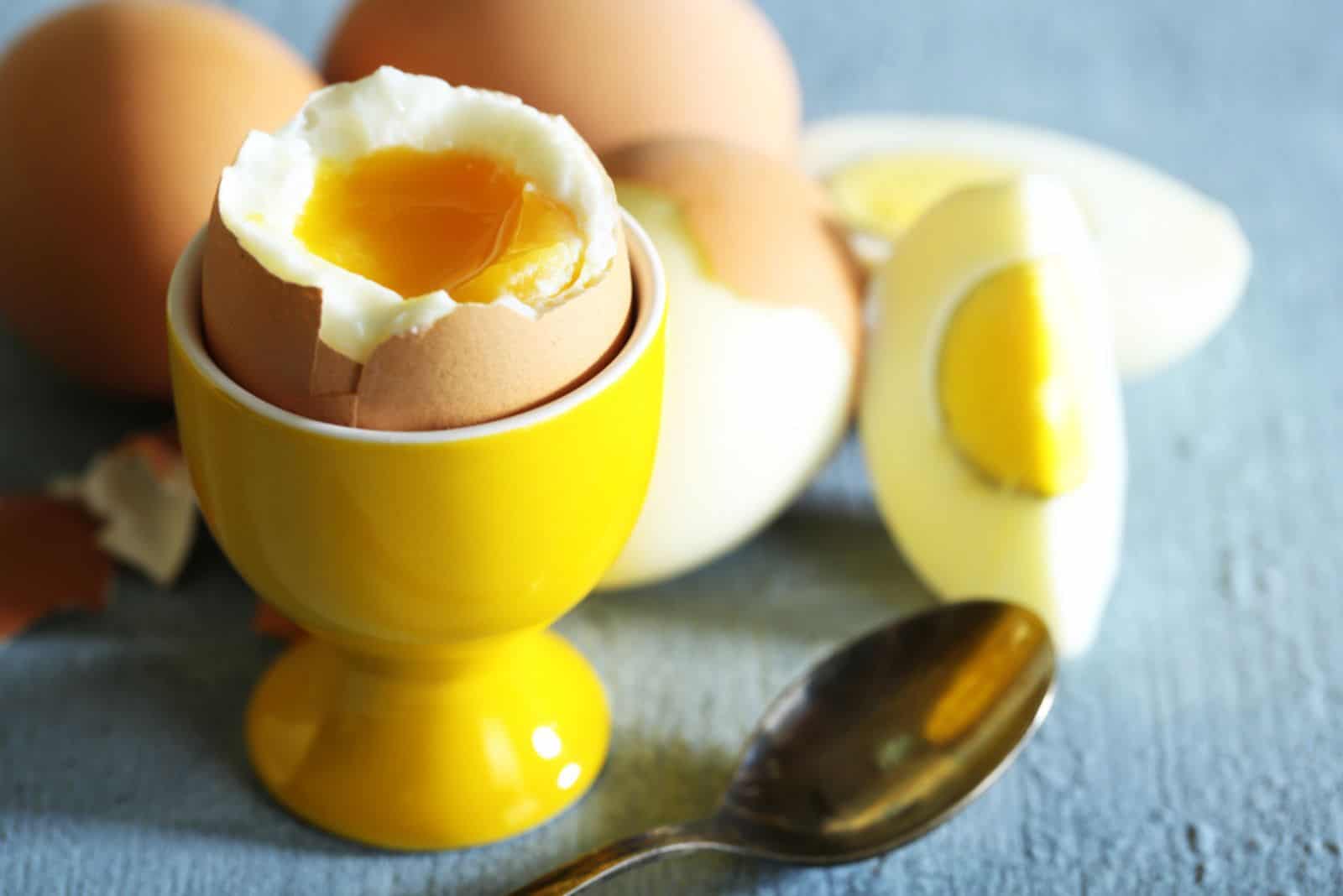
No, overcooked hard boiled eggs won’t hurt you. If you eat overcooked hard boiled eggs in moderation nothing bad can happen to you.
Because of the hydrogen sulfide, many people think that they could get some kind of disease like salmonella perhaps.
But that is simply not true because the amount of it is not so high that it can be threatening your health. The only problem is the lower quality of the egg due to the deteriorated texture.
But, if you hard boil your eggs and then leave them on the countertop, problems can easily arise if you don’t know how long you can keep them there.
So, since eggs are very high in proteins and have a porous shell, microbes can easily pass through. When your egg is in boiling water there is no problem because the high temperature will destroy those microbes and fungi.
But, after boiling, when you put your egg on the countertop, i.e. at room temperature, new fungi and bacteria can start growing, especially if the eggs have been over-boiled.
And, the longer the egg stays there, the more colonies of fungi and bacteria can arise. After you have moved your egg from the stovetop to a countertop, it is best to consume it within 2 hours, according to the 2-hour rule.
Also, if the temperature in the room is higher than 90 degrees F, the eggs shouldn’t stay at that temperature for more than 1 hour.
You can keep hard-boiled eggs (peeled or unpeeled) in the fridge for around 1 week, as recommended by the USDA.
How Can You Use Overcooked Hard Boiled Eggs?
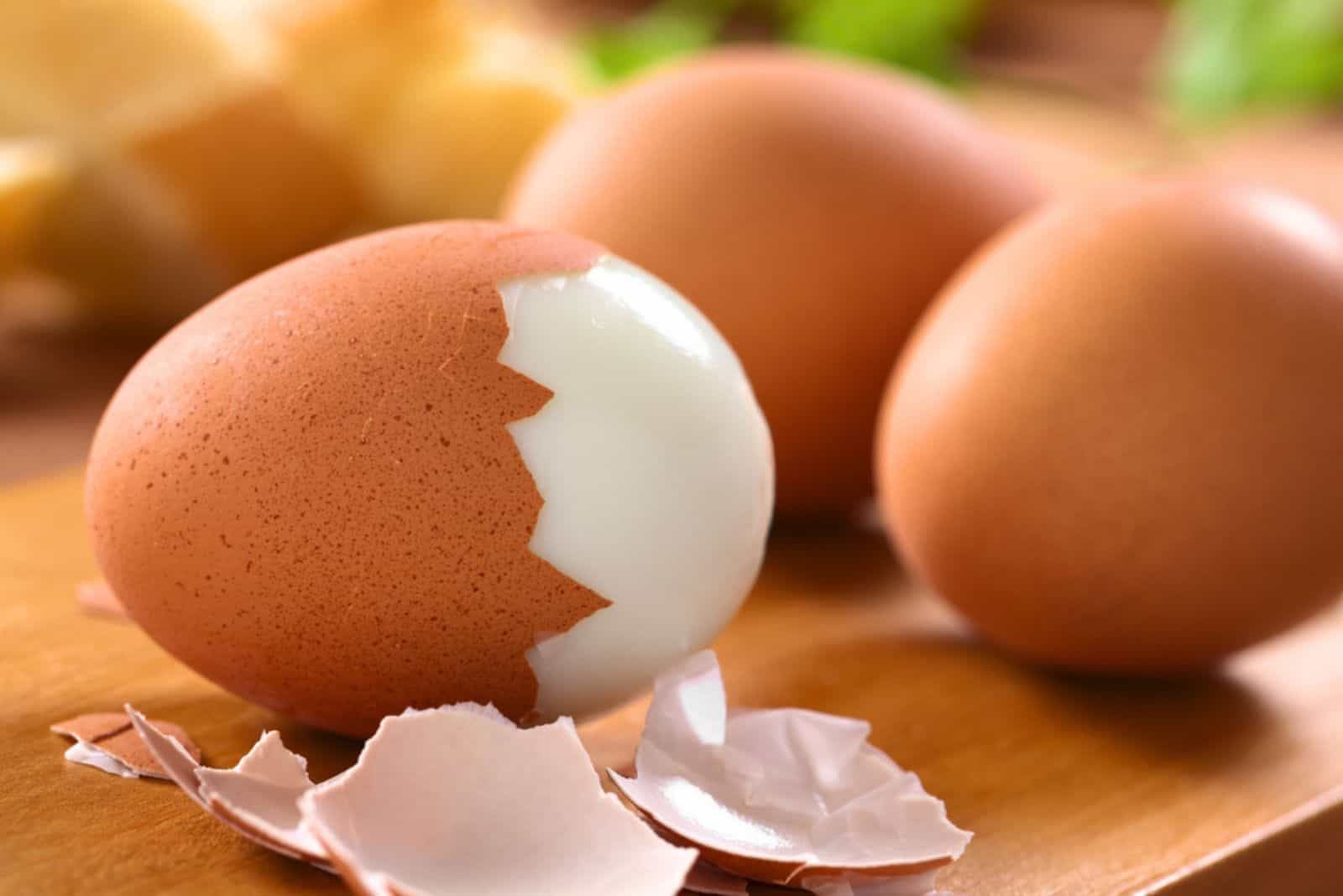
Although overcooked hard boiled eggs are not so pleasant to eat by themselves, there are solutions when it comes to incorporating them into some types of dishes.
Here, I will present you with a few dishes and cooking tips for how to use your overcooked hard boiled eggs the best way.
• First, you can mash overcooked hard boiled eggs with mayonnaise and veggies and make an egg salad. The high-fat content from the mayonnaise will remedy the dryness of the eggs, and the flavor will be more complete.
• Second, you can use overcooked hard boiled eggs to make a salad topping. Just make sure that the salad includes ingredients such as shredded lettuce and roasted chicken because that will complement the flavor of the eggs.
• And third, you can make so-called deviled eggs. Those are eggs filled with the paste. And that paste is usually made from egg yolks, mayonnaise, and mustard.
What Is The Best Way To Boil Eggs?
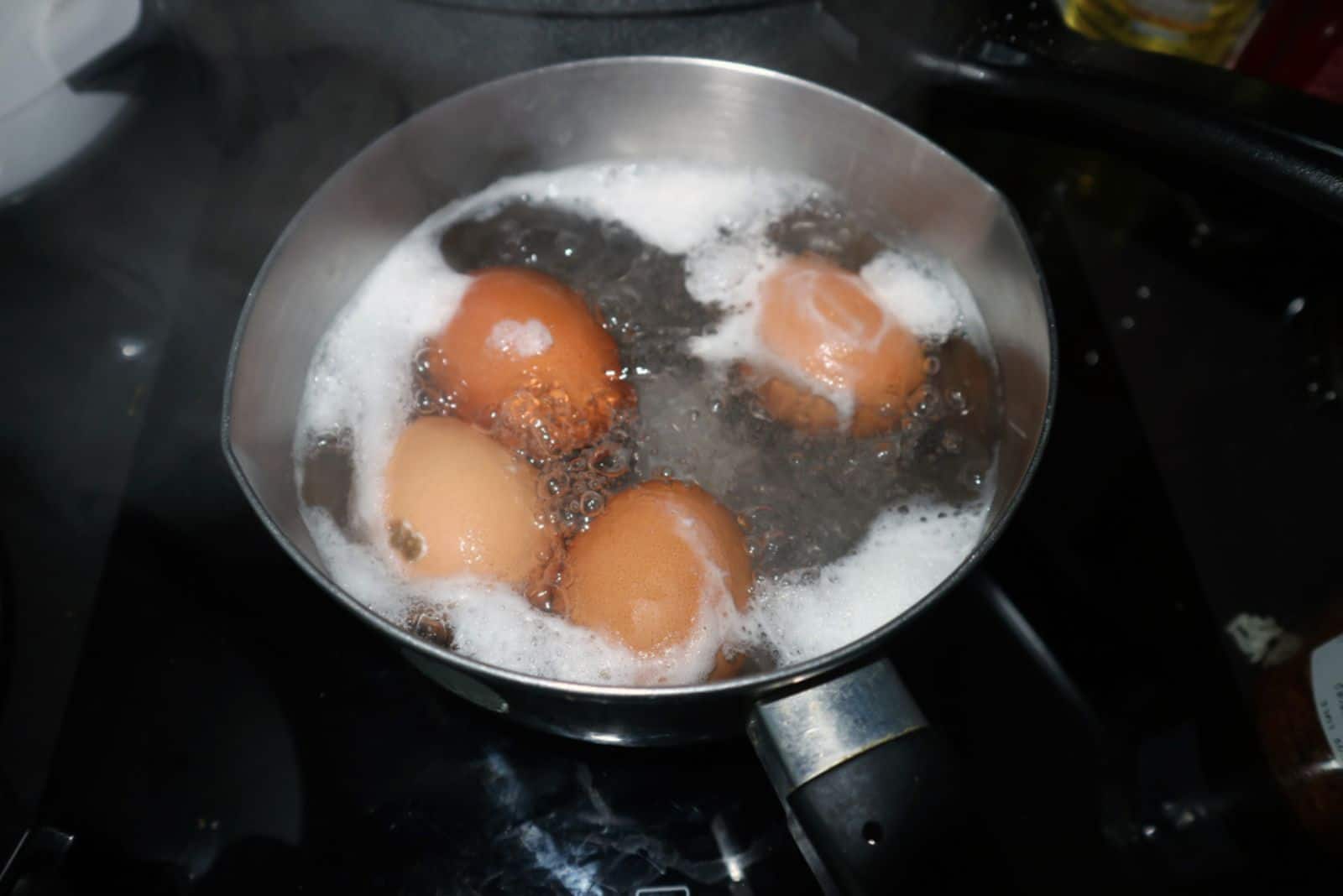
The best way to boil eggs really depends on your personal preferences and what you want to do with the egg at the time. But, in order to hard boil eggs properly, the standard time of cooking is considered to be 9 minutes.
The maximum time for the good, but not perfect hard-boiled eggs is estimated at about 12 minutes. Anything longer than those 12 minutes will cause your eggs to become overcooked.
The first thing you should do is to put your fresh eggs in the cold water and put that cold water on high heat and wait for it to boil. When it has started boiling, you can turn off the heat and then cover the pan with a lid.
After that, leaving your eggs there for about four minutes will make the center soft but still thick. And leaving them for about 12 minutes will make them fully cooked
After that time frame, you can transfer your eggs into cold water which will prevent them from cooking further and becoming off-putting. If you leave them in the hot water, they will quickly overcook and you do not want that to happen.
FAQs
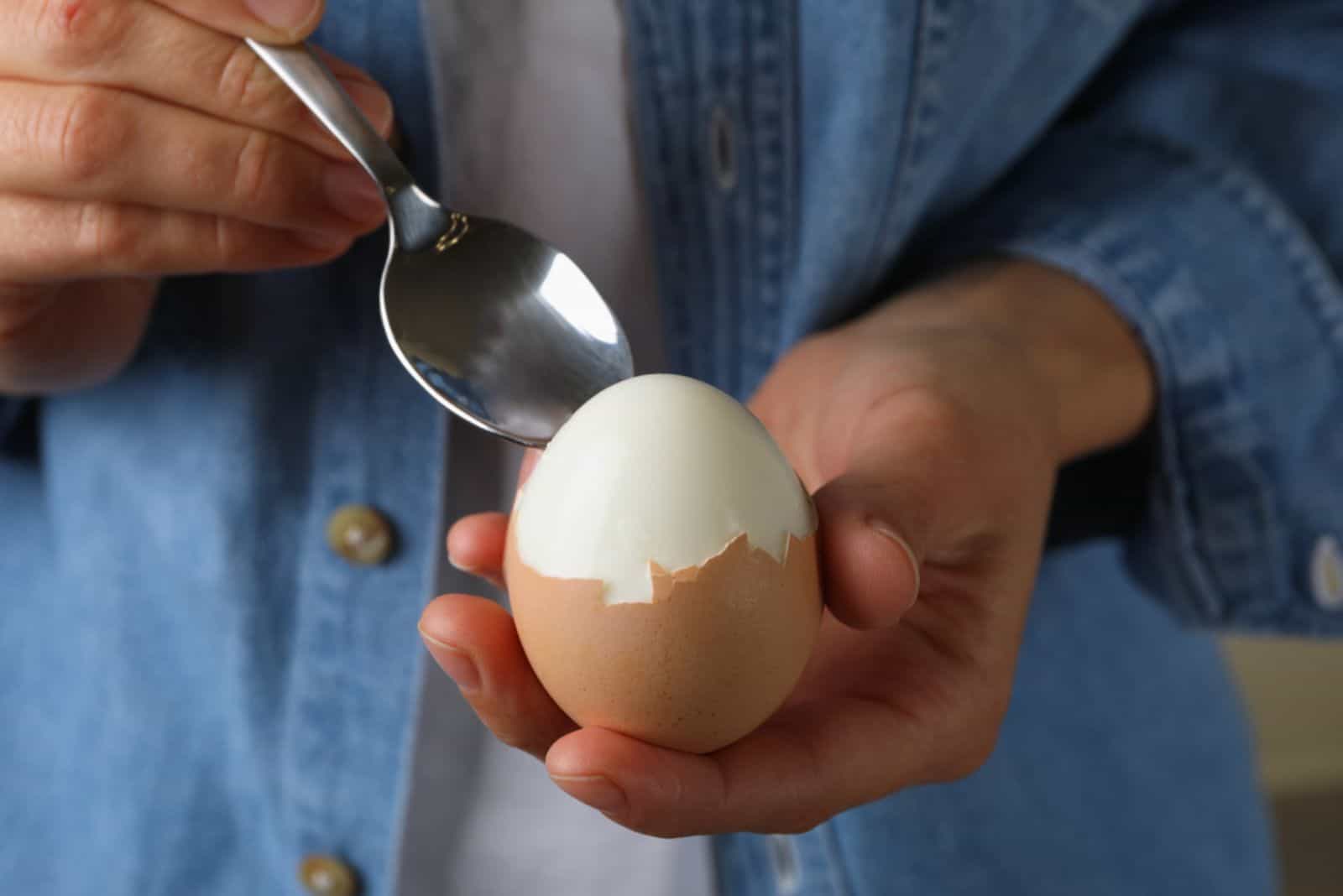
How Long Should You Boil Eggs To Make Them Hard?
It is best to boil eggs for about 9 minutes in order for them to become hard. But you can also boil them a little longer if you want them to be really hard. The maximum time of boiling is considered to be 12 minutes.
After that, you can transfer your eggs to an ice bath or bowl of ice water and let them cool down for 14 minutes.
What Happens If You Boil Eggs For 20 Minutes?
If you boil an egg for as long as 20 minutes, it will lose all its moisture. After that, your egg will be super dry and it won’t be pleasant to eat anymore.
The reason for that is the tight clumping of proteins in egg white that squeeze out all the water from the egg.
Is It Safe To Eat Raw Eggs?
Even though eggs belong to the protein food group, it is not safe to eat raw eggs, especially if they are not pasteurized. If the eggs are unpasteurized, it means that they can contain harmful bacteria.
But even though sellers present them as pasteurized, they often can sell you an unpasteurized substitute, so I wouldn’t recommend you ever consume raw eggs.
If you decide to eat them, here are the potential health benefits and risks of eating raw eggs.
Know How To Boil Your Eggs
Although overcooked hard boiled eggs won’t hurt, their overall quality is lower than eggs that are not over-boiled.
The most important changes that happen when you overcook your eggs include discoloration of the egg yolk, changes in smell, and a more rubbery texture.
It is not a very good idea to eat eggs in that state on their own because they won’t be that pleasant. But, I tried my best to present you with a few solutions in terms of using them the best way and enjoying them after all.
I also provided you with some extra important pieces of information related to boiling eggs so you will not be deprived of any important information.
